- Home
- Mike Lupica
Miracle on 49th Street Page 14
Miracle on 49th Street Read online
Page 14
She had her key. She’d just go to the room and hope Mattie was there.
She wondered if Josh had even taken the time to look for her. Or worry about her. Or if he’d admitted to Mattie what he’d been talking about with Bobby Fishman.
She wondered if the great Josh Cameron could even admit to himself that he might have done something really rotten to her.
Probably not.
It was like her mom said. You couldn’t be normal living in a world where nobody ever said the word no to you. Or had it been Mattie who said that? Sometimes in her head, it seemed like Mattie and her mom said the same type of things to her, trying to smarten her up.
She went back over, stood in the spot where the tree was going to go. Then she started walking back to the hotel.
She thought the Celtics would have left the hotel for the game by now. Josh had told her the bus usually left two and a half hours before the game. But she didn’t see any buses as she crossed Fifty-ninth Street on Fifth Avenue.
Just Josh Cameron, walking down Fifth from the opposite direction, the same direction the two of them had come from Wollman Rink last night. He was wearing a gray hooded sweatshirt that had “Patriots” on the front, a pair of old blue jeans nearly faded to white. No leather jacket today. No knit cap. Just these huge wraparound sunglasses, about the biggest Molly had ever seen in her life, covering the top half of his face.
She stood there and watched him walking his pigeon-toed walk, a beat too long. Because when he did look up, he looked right at her.
She didn’t run.
She just turned and walked away from him, walking fast. She knew the Plaza Hotel was to her right, even though it was closed down right now because they were fixing it. Mattie told her all that, because Mattie knew how much Molly had loved the Eloise books about the Plaza. She looked back and saw him running.
Molly ran now as the light changed, heading for the Plaza, wishing there were some kind of fairy tale waiting for her over there, running toward the little park area in front of the hotel. She saw a man quietly playing a guitar and singing, saw other people sitting around on the benches out there, some drinking coffee, some reading the Sunday papers, some feeding pigeons. One man stood on a bench and took pictures of the horse-drawn carriages lined up near the entrance to Central Park.
She had always seen how fast he was on a basketball court. Now she found out herself.
“Molly!” he said.
He hadn’t even waited for the light. He was dodging traffic like he was driving through it dribbling a ball. Of course not one car came close to him.
“Wait!”
She was thinking about running for the park instead when he got her by the arm.
“Do you want me to scream?” she said.
“No, I don’t. And you don’t want to.”
“Yeah,” Molly said. “You know me sooooo well.”
“We need to talk.”
“You did enough talking for both of us today, don’t you think?”
“That’s what I want to talk about,” he said. “How much did you hear?”
“Enough.”
“Whatever you think you heard, I’m sorry, I really am.”
“Don’t,” Molly said.
It seemed like she was always telling him that.
“I mean it.”
“You don’t mean anything you say. You just say what you think people want to hear.”
“That’s not true.”
Molly said, “And you don’t know what true is, either. All you know how to do is play basketball. That’s what’s real with you, everything else is for show.”
She shook off his arm. But Molly knew there was no point in trying to get away. She spotted one empty bench. He sat down next to her. There was a hot dog vendor set up on the sidewalk behind them. He asked if she wanted something to drink. She said it wasn’t a picnic.
“Okay,” he said, “how much did you hear?”
“Enough, I told you already.”
“I don’t know what that means.”
“It means that you don’t believe that I’m yours and that even if I am, you’re just keeping me around until you can figure out a way to ship me off to boarding school.”
He started to say something, but Molly cut him off. “Wait, I almost forgot. I have a question.”
“What?”
“Do you have some good summer camp picked out, too? So you don’t have to waste your precious time on me in the off-season, either?”
“Molly, listen to me. You misunderstood what I was doing with Bobby.”
“No,” Molly said, shaking her head hard from side to side, and squeezing her eyes shut when she started to feel more tears coming. She’d run again before she’d let him see her cry today. “No, no, no.” She sucked in some air and kept going. “See, that’s my problem, I’m too smart for my own good sometimes, especially with grown-ups. Everybody says so. So, no, I didn’t misunderstand. I understood perfectly.”
“You are smart,” he said. “And you’re right when you say I sometimes only say what I think people want to hear. Because that’s what I want to explain to you, that’s what I was doing with Bobby before. That’s what you heard. I was telling him what I thought he wanted to hear about you, just to get him off my back.”
He reached over, tried to cover her hands with his big right hand.
Molly yanked her hands away like she’d seen a spider crawling toward them.
“C’mon,” Josh said, “you must have done that at least once or twice in your life, even with your mom. Or Barbara. Or a teacher, maybe. Told them what they wanted to hear just so you could end the conversation and get out of the room?”
Molly looked up at him. He was smiling at her now, sharing this with her, smiling his TV smile, his magazine-cover smile, the one Mattie called his “money smile.” He should have looked silly in those sunglasses. But he didn’t. He just looked like the guy who always won over everybody in the end.
And then he messed up his hair.
What was Sam’s expression? He was playing her.
He was turning on the charm like she was some reporter he wanted to win over.
“Molly, I’m sorry,” he said. “I’m sorry I didn’t explain to you about how I was trying to handle Bobby. I’m sorry I hurt your feelings.” He leaned forward. “Come on, please tell me you accept my apology so we can get over to the game.”
Grinned again. Ran his fingers through his hair again. “Pretty please?”
Molly stood up then.
“Oh…my…God!” she shouted at the top of her lungs, trying to be as loud as New York City.
All the people in the little park in front of what used to be the Plaza looked at them.
Molly smiled to herself.
“I can’t believe it’s really you!”
Trying to make herself sound like some ditz girl who’d spotted her favorite singer at the mall.
“JOSH CAMERON!”
“Molly, cut it out,” he said, looking around, knowing that the damage was already done.
She looked right at him, then pointed.
“JOSH CAMERON…right here on this bench!”
Then she reached over, like she was stealing the ball from him in basketball, and pulled the sunglasses off his face.
Just because she felt like it.
All around, she could see people coming for them, some of the kids running.
“What do you think you’re doing?” Josh said.
“What my mom did,” she said. “Dumping you.”
CHAPTER 22
I was just wondering,” Barbara said. “Do you ever plan on talking to him again?”
It was the first week of December. They’d just had a huge snowstorm in Boston, one that surprised all the weather people on television, a storm that started late Sunday afternoon and didn’t stop until Monday morning. Even got them a snow day from school.
Three days later, the Public Garden and the Common were still covered with snow, making
it feel like the middle of winter already.
Molly had just gotten home from school, taken off all her snow stuff, gone straight upstairs to homework. Lots of homework.
She had looked up from her English assignment to see Barbara standing in the doorway.
“I just don’t want to talk to him right now,” Molly said.
“I don’t want to say ‘I told you so,’” Barbara said.
“So don’t,” Molly said.
“I really want to.”
“I know,” Molly said.
Barbara came in and shut the door behind her. Somehow, a minor miracle, Kimmy still didn’t know the real story about Molly and Josh Cameron, not that it mattered much anymore, one way or the other.
Barbara lowered herself onto Molly’s beanbag. “You’re aware he keeps calling.”
“Aware and don’t care,” Molly said. “Good rhyme, huh? Sam would be proud of me.”
“I never really felt as if I got the whole story about what happened in New York,” Barbara said.
She reached behind her, made the beanbag more like a chair, and settled back into it. Great. It must be some weird signal I give off, Molly thought, to all the Evans girls, that I’m ready to get down with some serious girl talk.
Except Molly never wanted to get down with girl talk. If she wanted to talk, she could call Sam. Or IM him. Or e-mail London friends.
“I just finally figured out that he didn’t want me,” Molly said. “And that there was nothing I could do to make him want me.”
“I don’t ever want to be put in the position of taking his side of things,” Barbara said. “But it’s pretty early in the process for you to decide that. And this is coming from somebody who thought the whole process was a bad idea from the start.”
Molly closed her Mead Square Deal writing tablet, her favorite kind, and put it next to her on her bed with her pen on top of it. It was like putting down her weapons and surrendering. No matter how busy Molly tried to look, Barbara wasn’t getting out of here one minute sooner.
Like mother, like daughter.
Or maybe it was the other way around.
“Process,” Molly said. “You make it sound like I was trying to fill out some kind of application.”
“Don’t make this more difficult than it already is,” Barbara said. “You know what I mean. In the best of all possible worlds, you and Josh weren’t going to figure out the whole father-daughter thing in a blink.”
She produced one of her signature Barbara sighs now. “Listen to me, talking about fathers and daughters like I’m some kind of expert on the subject,” she said. “My dad and I still haven’t figured things out, and we’re starting to run out of time.”
Molly nodded, like she understood completely, but didn’t say anything.
Barbara said, “You can’t ignore him forever. He is your father, after all. Even if he doesn’t deserve you.”
“He’s really not my father,” Molly said. “Not in any way that really matters.” Molly couldn’t help it, she made this groaning noise now, like the whole conversation had suddenly socked her in the stomach. “None of this matters.”
“Of course it does.”
“Not if I don’t let it,” Molly said. She looked right at Barbara, hoping she’d get the hint. “Or talk about it.”
“You still talk to that housekeeper.”
“Mattie,” Molly said. “I talk to her on the phone sometimes, or she comes over if I tell her Sam and I are going to be hanging in the park.”
“What does she think you should do?”
“Give him another chance,” Molly said, “even though she got madder at him because of New York than I did. She says I have to cut him some slack because he has no idea how to deal with people. Girl people especially.”
“But he has girlfriends,” Barbara said, shooting Molly a disgusted look. “Lots of them, if you believe what you read.”
“I asked Mattie about that,” Molly said. “She says that most of them are so dumb, he doesn’t have to talk to them, anyway.”
“You really should talk to him,” Barbara said.
“You’re encouraging this now?”
“I’m not going to lie to you,” Barbara said. “The idea of him being unhappy about something other than losing some silly game doesn’t make me a bit unhappy. Believe me when I tell you that. But I made a promise to your mom to do everything possible to make you happy.”
“I know I’m only twelve,” Molly said, “but I think I’ve started to figure something out. You can only do that for yourself. If you expect other people to make you happy, you’re always gonna end up disappointed in the end.”
Finally Barbara got up. It looked like one of her yoga moves, the way she came straight up even though her legs had been crossed. She looked pretty proud of herself.
“Remember something,” Barbara said. “We’re moving in a few weeks. If you’re going to try to patch things up, now is the time to do it. Before it’s too late.”
“Got it,” Molly said.
“To be continued,” Barbara said.
Boy, Molly thought to herself, I sure hope not.
She wanted to get all her writing done because the Celtics were playing the Bulls in Chicago later—it meant a late start, eight-thirty—and she wanted to listen to as much of the game as possible under the covers. She wouldn’t admit to Barbara, or Mattie, or even Sam, she was still interested in the Celtics.
She might not miss Josh Cameron, but she missed the Celtics.
She missed being part of the team.
She did have a team of her own, at Prescott, getting ready to play the fourth game of their six-game season against Bartlett.
Which was, Sam pointed out at lunch the next day, a school even more precious than their own.
“How could that possibly be?” Molly said.
“More plaid,” he said. “Lots more. I looked it up one time. I think Bartlett is the capital of plaid.”
“Are you coming to the game?” Molly said. “You don’t have to, you know.”
“Can’t make it until the second half,” Sam said. “We’ve got some dumb yearbook meeting. But I will definitely be there, Miss Miss.”
“Don’t call me that.”
Sam made an attempt to sound like a cat snarling and held up his fingers like claws.
“That was not a cat sound,” Molly said.
Sam said, “I’ll believe that when you pull back the claws.”
“Sorry,” Molly said. “Miss Miss was, like, a Celtics thing.”
“I’ll just write this off as you getting your game face on,” Sam said.
“I don’t even have a game face.”
“Keep telling yourself that.”
“What’s that supposed to mean?”
“It means,” he said, “that you’ve pretty much had your game face on since you got back from New York.”
The Prescott-Bartlett game was scheduled for three-thirty. Prescott’s record was only one and two, but it wasn’t because Molly wasn’t doing her part. She didn’t take basketball nearly as seriously as some of the other girls on the team—or as their coach, Mr. Ford, the seventh-grade history teacher—but it didn’t stop her from being the best they had, by far.
The day before, at practice, Molly had grabbed a rebound, dribbled through the rest of the team, and then instead of setting up their one play when she got across half-court, had seen an opening and driven all the way to the basket for a layup.
“I forget sometimes,” Betsy Bender, one of the other guards, had asked Mr. Ford after the play. “What’s Molly’s position?”
Betsy Bender’s entire contribution to the team, as far as Molly had ever noticed, was constantly yelling that she was open and waving for somebody to pass her the ball.
“Molly’s position,” Mr. Ford said, “is basketball player.”
The more she played, the more she liked it. All of it. More than she ever thought she would. She’d basically only tried out for the team because
she didn’t want to wear the tights in ballet and didn’t want to do drama.
She’d had enough drama in her life.
Basketball was different from skating, where it was all on you. In basketball, you had four other players to worry about, and she could see, just after a few games, how hard it was, juggling what was best for all of them and what was best for yourself. More complicated than it looked. Sometimes what was best was shooting for herself, even though she didn’t shoot nearly as often as she could. Sometimes it meant passing. Sometimes it meant passing to somebody you hadn’t passed to in a while just to make sure that player didn’t forget she was still on the team.
That was Mr. Ford’s big thing, keeping everybody involved.
Little by little, she was figuring out the best way to do it. And while she would not ever admit this to Mr. Smarty Pants Sam Bloom, the way that made it easiest for her was imagining that she was Josh Cameron.
Because all the things Mr. Ford talked about, when he was giving them his daily speech about playing basketball “the right way,” Josh did every single time he was on the court. The basketball “values” that Mr. Ford held sacred? All you had to do was watch Josh play to understand them, because they were right there for you, as plain as day. Playing on her first basketball team, that hadn’t been the crash course for her in basketball. Watching Josh was her crash course.
Even though she acted like she didn’t watch—or care—anymore.
The Bartlett bus got to Prescott late, a few minutes after four. When Molly heard the applause from the layup line, she assumed that the parents in the stands, impatient for the game to start, were just being sarcastic.
Only the applause wasn’t for the Bartlett players.
It was coming from them.
Molly said to Mr. Ford, “Shouldn’t they wait to do something good in the game before they cheer for themselves?”
Mr. Ford said, “They’re not cheering for themselves. Check it out.”
Betsy Bender said, “Isn’t that one of the Celtics?”
Molly almost didn’t want to look. She suddenly felt her heart beating inside her chest, was sure that her teammates could hear her heart beating inside her chest.

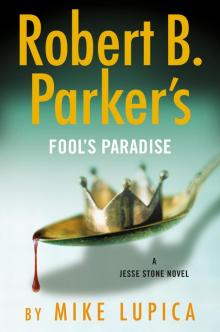 Fool's Paradise
Fool's Paradise Batting Order
Batting Order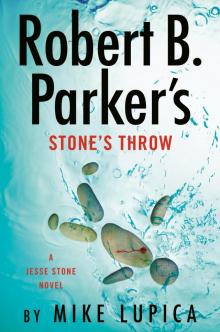 Stone's Throw
Stone's Throw The Lacrosse Mix-Up
The Lacrosse Mix-Up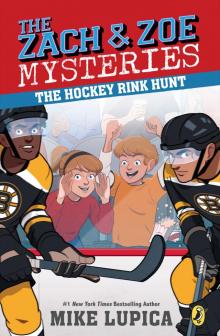 The Hockey Rink Hunt
The Hockey Rink Hunt Payback
Payback Triple Threat
Triple Threat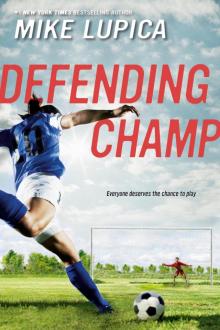 Defending Champ
Defending Champ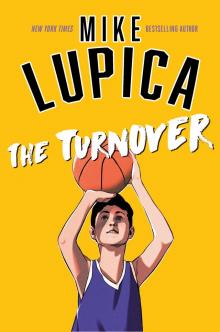 The Turnover
The Turnover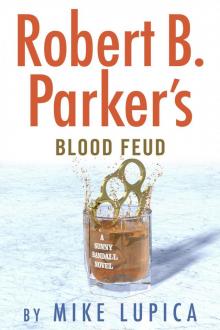 Robert B. Parker's Blood Feud
Robert B. Parker's Blood Feud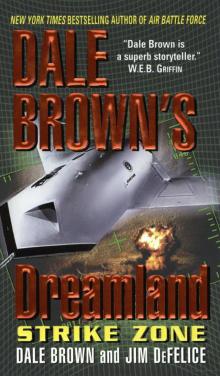 Strike Zone
Strike Zone Hero
Hero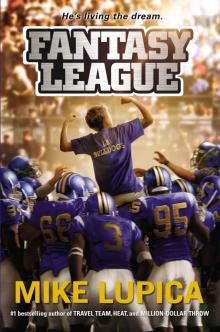 Fantasy League
Fantasy League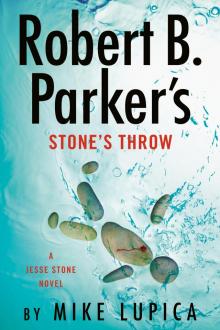 Robert B. Parker's Stone's Throw
Robert B. Parker's Stone's Throw The Big Field
The Big Field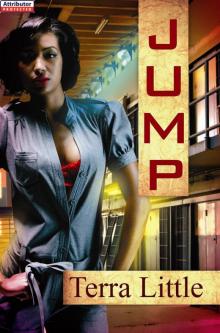 Jump
Jump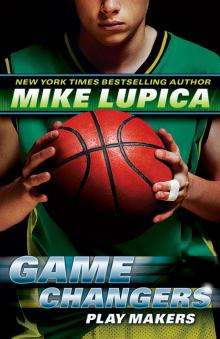 Play Makers
Play Makers The Underdogs
The Underdogs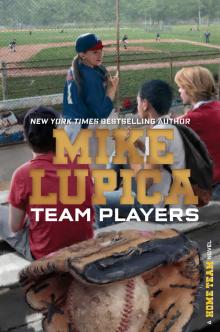 Team Players
Team Players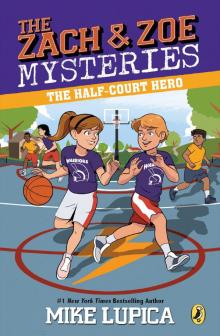 The Half-Court Hero
The Half-Court Hero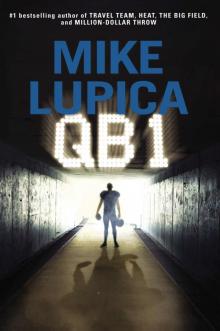 QB 1
QB 1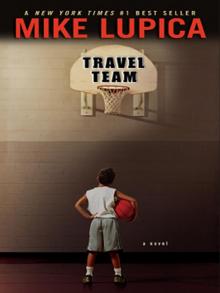 Travel Team
Travel Team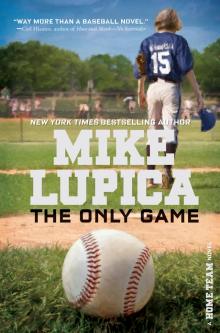 The Only Game
The Only Game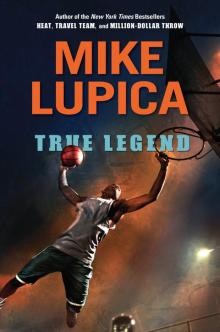 True Legend
True Legend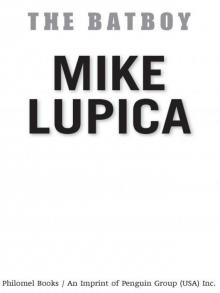 The Batboy
The Batboy Hot Hand
Hot Hand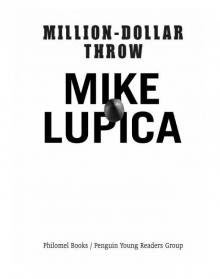 Million-Dollar Throw
Million-Dollar Throw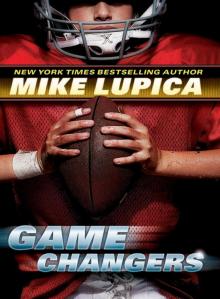 Game Changers
Game Changers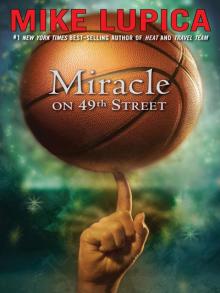 Miracle on 49th Street
Miracle on 49th Street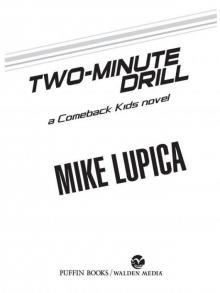 Two-Minute Drill
Two-Minute Drill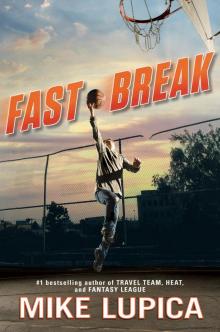 Fast Break
Fast Break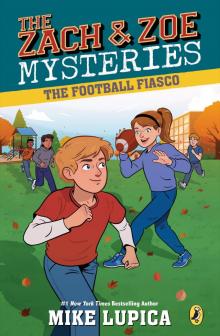 The Football Fiasco
The Football Fiasco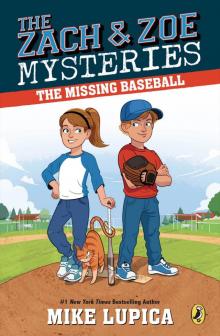 The Missing Baseball
The Missing Baseball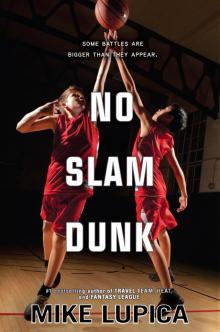 No Slam Dunk
No Slam Dunk Heavy Hitters
Heavy Hitters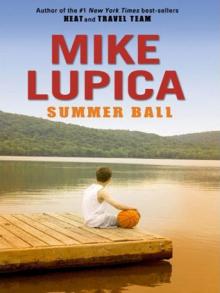 Summer Ball
Summer Ball The Extra Yard
The Extra Yard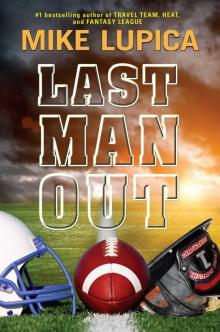 Last Man Out
Last Man Out